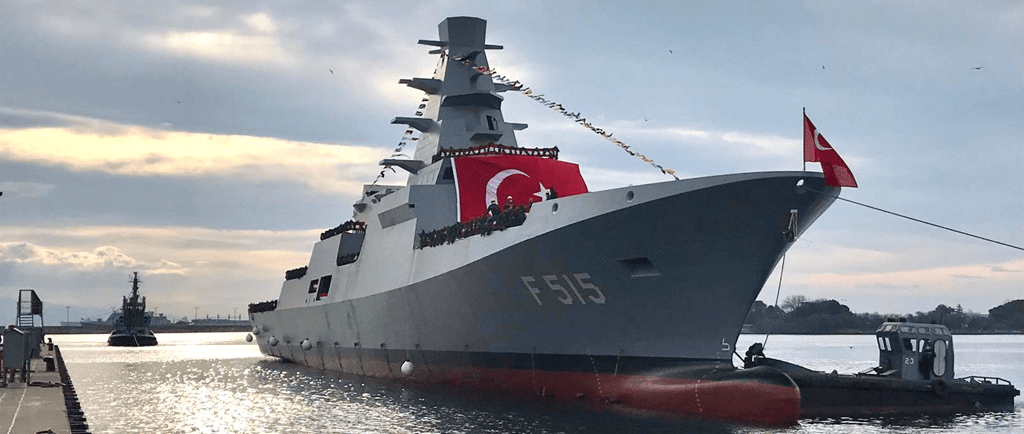Greece-Turkiye : continuing tensions in the Aegean Sea
EUROPE
Thomas Dos Remedios
7/6/20254 min read


A CONFLICT ROOTED IN HISTORY AND INTERNATIONAL LAW
The tensions between Greece and Turkey in the Aegean Sea are rooted in the territorial consequences of the collapse of the Ottoman Empire at the beginning of the 20th century. The Treaty of Lausanne (1923) and the Treaty of Paris (1947) gave Greece sovereignty over a large part of the Aegean islands, forming an island constellation that surrounds Turkey's western coastline. Since then, Ankara has seen this encirclement as a major strategic constraint. The issue of territorial waters remains the most sensitive. While the United Nations Convention on the Law of the Sea (UNCLOS, 1982) authorises coastal states to extend their territorial waters to 12 nautical miles, Greece - a signatory - claims this right, without yet having applied it to the whole of the Aegean Sea. Turkey, a non-signatory to the UNCLOS, regards this extension as a threat to its security, and in 1995 even voted a casus belli in the event of Athens implementing this measure.
Tensions are also evident in airspace: Greece claims a 10-mile airspace, beyond its current 6 nautical miles, which Turkey does not recognise. This leads to almost daily incursions by military aircraft, which are perceived as violations of sovereignty. In 2022, Greece reported more than 2,500 violations of its airspace by Turkish aircraft. There is constant military surveillance on both sides, while uninhabited islets such as Imia/Kardak have become flammable symbols. In 1996, a confrontation over this micro-territory almost led to open war. These micro-conflicts crystallise irreconcilable visions of maritime sovereignty, reinforced by antagonistic historical narratives. For Turkey, the Aegean cannot become a Greek lake. For Greece, the islands are an integral part of the Hellenic nation, with undeniable historical and legal legitimacy.
THE EXTENSION OF ENERGY RIVALRIES
Over and above the issues of sovereignty, the Aegean and the Eastern Mediterranean have become areas of energy competition since the 2010s. The discovery of vast offshore gas fields (Tamar, Zohr, Leviathan, Aphrodite) has redefined the fault lines, attracting new players with a rationale of cooperation and exclusion. In 2020, Greece, Cyprus, Israel and Egypt founded the Eastern Mediterranean Gas Forum (EMGF), supported by the European Union, with the aim of developing a joint strategy for exploiting and exporting resources.
Turkey, marginalised from this arrangement, responded with aggressive diplomacy, concluding a controversial maritime agreement with the Libyan government in Tripoli in November 2019. This agreement redefines the maritime borders between the two countries by drawing an exclusive economic zone (EEZ) that crosses the waters claimed by Greece south of Crete. The Turkish-Libyan agreement was strongly denounced by Athens, Cairo and Brussels as a violation of international law. Since then, Turkey has stepped up its exploratory missions and patrols in disputed areas, escorting its ships with warships.
At the same time, Greece is strengthening its strategic alliances. In 2020, it signed a defence agreement with France, providing for the purchase of the latest generation of frigates (Belh@rra) and Rafale aircraft. It is also involved in key energy projects such as the EastMed pipeline and the Great Sea Interconnector electricity cable. In July 2024, an incident pitted an Italian ship commissioned to carry out geotechnical studies against Turkish frigates off the Dodecanese. This episode illustrates the extent to which energy issues are now militarised, making any confrontation in disputed areas plausible.
THE TURKISH "BLUE HOMELAND" DOCTRINE: BETWEEN AMBITION AND TENSION
At the heart of this strategic reconfiguration is the Mavi Vatan doctrine - the ‘blue homeland’ - which has structured Turkish maritime geopolitical thinking since the late 2010s. Formulated by Turkish admirals and taken up by President Recep Tayyip Erdoğan, this doctrine asserts Turkey's right to project its sovereignty over a vast maritime area of more than 460,000 km², including the Aegean Sea, the eastern Mediterranean and the Black Sea. It is based on a realist and sovereignist reading of maritime law, challenging the legitimacy of an international legal order perceived as biased in favour of Western states and their allies.
For Greece, this strategy is perceived as an attempt at revisionism. It is reminiscent of the logic of imperial expansion and fuels structural mistrust. Greek public opinion remains very sensitive to any concession perceived as a loss of sovereignty, which considerably limits diplomatic room for manoeuvre, particularly in electoral contexts.
DE-ESCALATION REMAINS FRAGILE AND UNCERTAIN
Despite the build-up of tensions, several attempts at de-escalation have been made since 2023. The Erdoğan-Mitsotakis summit in Athens in December 2023 was hailed as a moment of détente, with the revival of confidence-building measures suspended since 2020. A mechanism for preventing air and naval collisions was reactivated under the aegis of NATO. The two capitals also announced a positive agenda including economic cooperation, culture and tourism. However, this rapprochement remains fragile. None of the fundamental disputes - the definition of EEZs, the status of islands, the Turkish casus belli - have been resolved. The differences remain deep, structural and linked to incompatible strategic interests.
External players also have a direct influence on the stability of the region. The United States, traditionally an ally of both countries, is seeking to maintain a balance, but has been cautious since its relative withdrawal from the Levant. The European Union, which supports Greece, is hesitating between sanctions and dialogue with Ankara. France is playing a more assertive role alongside Athens, reinforcing the polarisation. In this context, the main risk is that of an uncontrolled incident: the overflight of a downed aircraft, a collision at sea, or an isolated provocation. Greek (ELIAMEP) and Turkish (SETA) think-tanks agree that a high-intensity conflict is unlikely, but that a one-off confrontation could occur at any time in the absence of lasting resolution mechanisms.
The Aegean Sea is therefore much more than a maritime space: it has become a strategic arena, a theater for projecting sovereignty, and a sounding board for national rivalries. Tensions between Greece and Turkey are deep, multidimensional, and fueled by antagonistic doctrines, conflicting energy ambitions, and divergent perceptions of international law. While the two countries have so far managed to avoid the worst, the absence of a legal and political arbitration accepted by both parties keeps the region in a situation of chronic instability. Ultimately, only a political will to overcome this, perhaps in the form of a joint referral to the International Court of Justice, could pave the way for a structural calming of tensions. In the meantime, the Aegean Sea remains one of the most sensitive fault lines on the European continent.
Thomas Dos Remedios, for SPECTIO
The opinions expressed are those of the authors and do not reflect the position of Think Tank Spectio.
